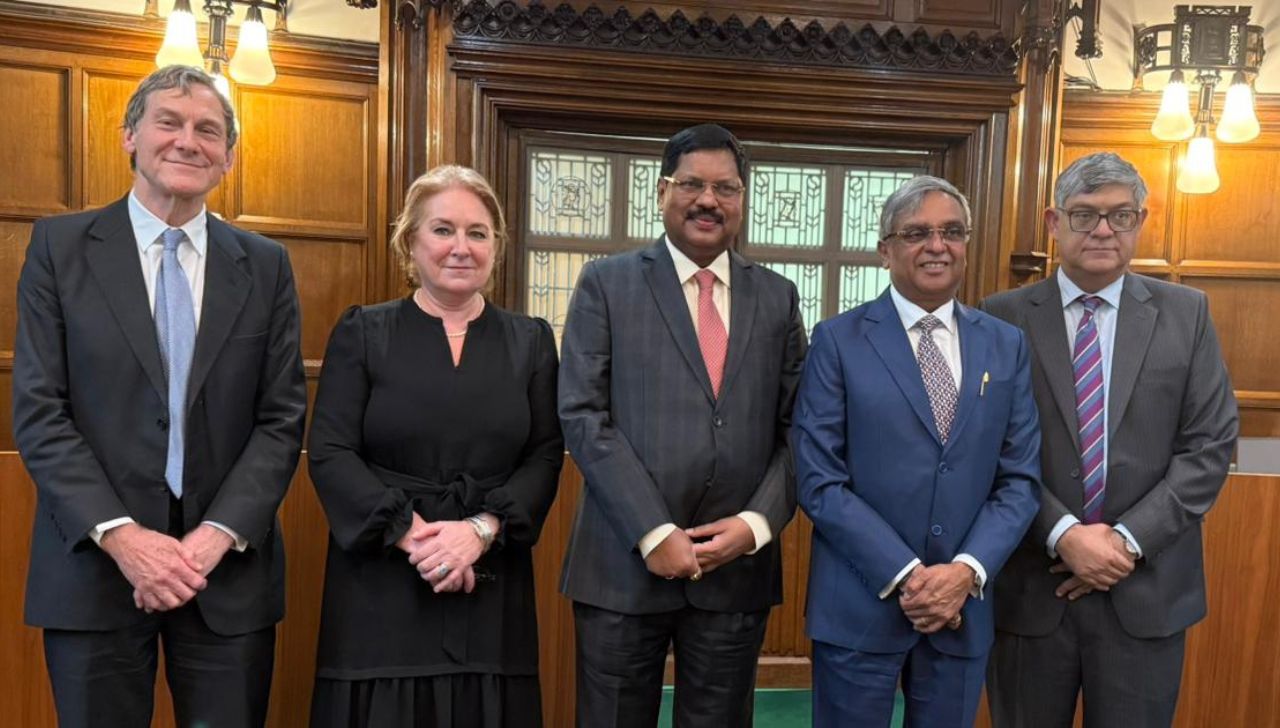 English
English

Chief Justice of India BR Gavai said that that legitimacy and public confidence is not secured through coercion of command but through the credibility earned by the courts. A must must read on Dynamite News:

CJI BR Gavai (Centre) at Roundtable discussion in UK
London: Chief Justice of India BR Gavai, while speaking at the Roundtable discussion in the UK Supreme Court on Tuesday, said that to promote public accessibility to its judgments, the Supreme Court of India is also translating its judgments from English to regional languages, reports Dynamite News correspondent.
The other distinguished participants included Justice Vikram Nath, Judge Supreme Court of India; Baroness Carr, the Lady Chief Justice of England and Wales; and Lord Leggatt.
The subject of the Roundtable discussion was “Maintaining Judicial Legitimacy and Public Confidence”.
Institution Of Truth
CJI Bhushan Ramakrishna Gavai said that the judiciary must not only dispense justice, but also be seen as an institution that deserves to hold truth to power. The terms “judicial legitimacy” and “public confidence” are interconnected.
He said that the judiciary earns its legitimacy by upholding constitutional values with independence, integrity, and impartiality.
Independence Of Judiciary
While stressing the need of independence of judiciary, CJI Gavai said that Dr BR Ambedkar… emphasized in the Constituent Assembly Debates in 1949 that “our judiciary must both be independent of the executive and must also be competent in itself.”
The Collegium
He said that to ensure the independence of the judiciary and to reduce executive interference in the judicial appointment process, the Collegium was introduced to unanimously make its recommendations about the appointments of SC and HC judges which would be final.
CJI Gavai said that as the accessibility of courts to the public is essential for the functioning of any judicial system. Article 32, which guarantees all citizens the fundamental right to approach the Supreme Court, has been referred to as the "soul" and "heart" of the Constitution.
Post-Retirement Jobs By Judges
Regarding the post-retirement jobs taken by judges immediately after retirement, or resignation from the bench to contest elections, Chief Justice of India said that it raises significant ethical concerns and invites public scrutiny. A judge contesting an election for a political office can lead to doubts regarding the independence of Judiciary.
That is why to preserve the credibility and independence of the judiciary, CJI Gavai said that many of my colleagues and I have publicly pledged not to accept any post-retirement roles or positions from the government.
Disclosure Of Assets
To bolster public confidence through transparency and to set an example of ethical leadership, Chief Justice of India said that the judges of the Supreme Court have voluntarily disclosed their assets.
To enhance public transparency, the Supreme Court of India also initiated live-streaming of its Constitution-bench cases, he said.
SC Judgements Translation In Regional Languages
CJI Gavai further said, “To promote public accessibility to its judgments, the Supreme Court of India is also translating its judgments from English to regional languages. Additionally, the launch of the eSCR (electronic-Supreme Court Reports) portal, which offers free access to all its judgments, is a significant step in democratizing legal information.”
Chief Justice of India, concluding his speech, said that that legitimacy and public confidence is not secured through coercion of command but through the credibility earned by the courts. He said that transparency and accountability are democratic virtues.